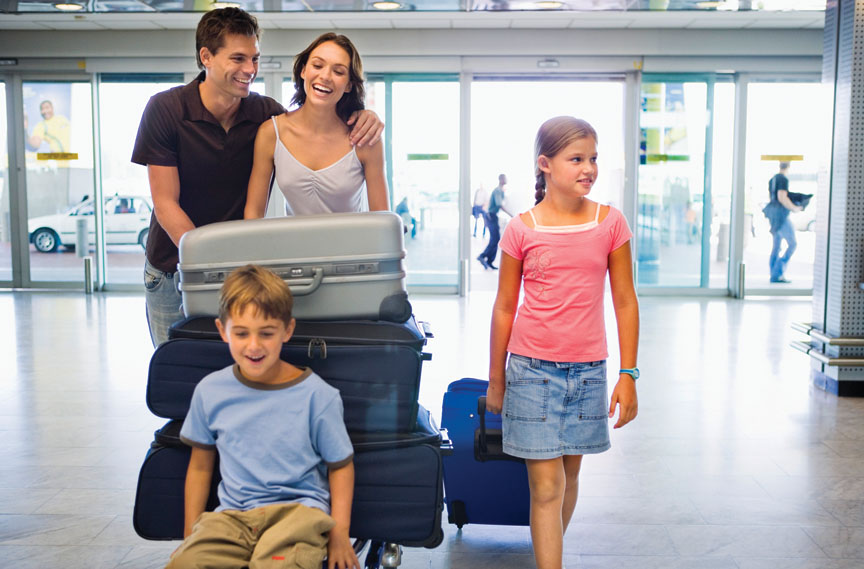There is a new South African immigration law that has come into effect relating to travelling abroad with children.
From 1 June 2015, the Department of Home Affairs in South Africa will require all passengers under 18 to travel with an unabridged birth certificate.
Under this new law, children under the age of 18 will have to produce an unabridged birth certificate (showing particulars of both parents), along with their passport, when they leave or enter the country.
What is the difference between abridged and unabridged Birth Certificate?
An abridged birth certificate shows personal details of an individual, such as identity number and date of birth along with place of birth, whereas an unabridged birth certificate additionally carries details about both parents.
Both abridged as well as unabridged birth certificates are computer printouts, both birth certificates can be apostilled or legalized.
An abridged birth certificate is issued within minutes or hours, whereas it takes between 6 weeks to 6 months to issue an unabridged birth certificate.
While both abridged and unabridged birth certificates are valid documents, there are many circumstances when it is vital to have unabridged birth certificates.
Where can one attain an unabridged certificate ?
Parents can apply for an unabridged birth certificate at Home Affairs. To do this they will need to take original or certified copies of their of ID book, and the child’s ID number. The unabridged certificate costs R75. It will take a maximum of 8 weeks for the certificate to be released from the date of application. Unabridged birth certificates are now being issued automatically for newborns. If your infant was born after 14 March 2013, you should be in possession of a UBC.
Children will obviously not be travelling with their parents all the time. They could be going on school trips or be travelling with their relatives. In such instances, the following procedures should be followed:
One parent travelling with a child
In the instance where one parent is travelling with a child for any reason, whether as a single parent, or merely in the absence of the other parent, the following documents must be produced for immigration officials:
- An affidavit from the other parent or legal guardian of the child, confirming their consent for the accompanying adult to travel with the child
- Single parents are required to produce a court order (and not just an affidavit) granting full parental responsibilities and rights or legal guardianship in respect of the child, if he/she is the parent or legal guardian of the child
- If applicable, a death certificate of a deceased parent must be produced
Adult travelling with a child who is not his/her biological child
We live in a society of extended family and there are many instances where adults may need to travel with children who are not their biological children. This could be for family, school or religious reasons. In instances where an adult is travelling with a child who is not his/her biological child, the following documents must be produced for immigration officials:
- A copy of an unabridged birth certificate
- An affidavit from the parents or legal guardians of the child, confirming their consent for the accompanying adult to travel with the child
- Copies of the identity documents or passports of the parents or legal guardians of the child
- Contact details of the parents or legal guardians of the child
- Where one or two adults are travelling with a large group of children, these adults must have these documents for each child travelling. Although not required, it may be a good idea for these adults to have a letter from the trip organisers, giving authority to these adults to attend to these children, say some experts.
Children travelling as unaccompanied minors
Any unaccompanied minor shall produce to the immigration officer:
- Proof of consent from one or both parents or legal guardian, as the case may be, in the form of a letter or affidavit; if only one parent’s consent is provided, the parent in question must also provide a copy of a court order proving that he or she has been granted full parental responsibilities and rights in respect of the child
- A letter from the person who is to receive the child in the Republic, containing his or her residential address and contact details where the child will be residing
- A copy of the identity document or valid passport and visa or permanent residence permit of the person who is to receive the child in the Republic
The contact details of the parents or legal guardian of the child
Changes to the rules
Changes have been made to the new rules originally announced in order to minimise any negative impact on tourism. There has been a lot of drama with regards to this since the law was implemented.
Foreigners from China, one of South Africa’s key source markets, will no longer be required to also have a translated copy of unabridged birth certificates of the children travelling with them.











